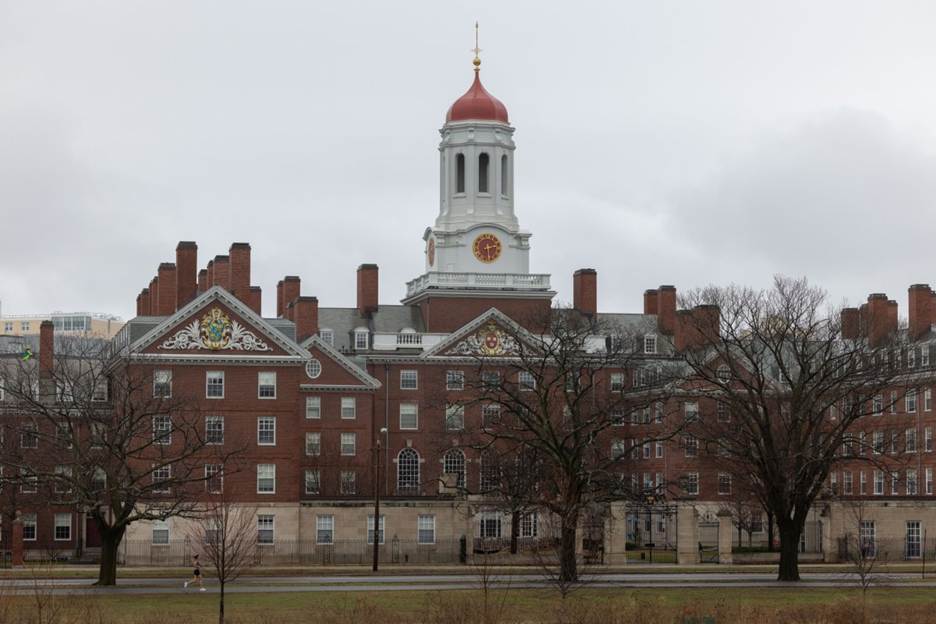
Dunster House at Harvard University in Cambridge, Massachusetts, on March 17. Scott Eisen/Getty Images
A group of U.S. universities sued the Department of Energy on Monday over cuts to federal research funding, joining Harvard University in fighting President Donald Trump‘s administration.
Newsweek has contacted the DOE and the White House for comment via email.
Why It Matters
The lawsuit came the same day that Harvard said it would defy the Trump administration’s demands, prompting the federal government to announce that it would freeze more than $2.2 billion in grants and $60 million in contracts to the university.
In a letter to the Harvard community on Monday, Harvard President Alan Garber said the university would “not surrender its independence or relinquish its constitutional rights.” The actions reflect growing pushback at universities against what is viewed by the institutions as federal overreach.
What To Know
The group of universities—including Brown University, Princeton University, Massachusetts Institute of Technology, California Institute of Technology and the University of Illinois—and several higher education associations have asked a federal judge in Massachusetts to immediately block the Trump administration from moving forward with a policy change aimed at reducing government spending in support of “indirect” research costs.
The DOE announced on Friday that it would cut an estimated $405 million in annual spending by limiting support of indirect costs of research funding to 15 percent, saying it would bring “greater transparency and efficiency” to federal government spending.
Indirect costs, which are not readily attributed to individual projects, cover facilities, equipment and research staff that many scientists say are vital to conducting their work. The department said the average rate of indirect costs by grant recipients at colleges and universities was more than 30 percent.
“Because universities cannot sustain DOE-funded programs at the 15 percent indirect cost rate that DOE will now inflict, myriad critical projects—often the product of years or decades of effort—are in jeopardy of being stopped in their tracks,” the lawsuit said.
These projects include the development of advanced nuclear and cybersecurity technologies, novel radioactive drugs to diagnose and treat cancer, and upgrades for electrical grids in rural communities. The lawsuit also said universities would have to reduce staff and training programs.
“If DOE’s policy is allowed to stand, it will devastate scientific research at America’s universities and badly undermine our nation’s enviable status as a global leader in scientific research and innovation,” the lawsuit said.
In February, the National Institutes of Health announced a similar cut to indirect research costs, prompting several lawsuits. Earlier this month, a federal judge in Boston blocked the Trump administration from proceeding with the policy.
What People Are Saying
Energy Secretary Chris Wright said in a statement on Friday: “The purpose of Department of Energy funding to colleges and universities is to support scientific research—not foot the bill for administrative costs and facility upgrades. With President Trump’s leadership, we are ensuring every dollar of taxpayer funding is being used efficiently to support research and innovation—saving millions for the American people.”
Brown University President Christina H. Paxson said in a statement on Monday: “We will continue to take the action necessary to protect the essential funding that supports Brown research and our country’s need for innovative solutions to critical problems.”
MIT President Sally Kornbluth said in a message to the university’s community on Monday: “This past Friday evening, the Department of Energy (DOE) imposed a cap similar to that from NIH. DOE announced that, for grants to universities, it would no longer cover indirect costs at previously agreed-to rates and would instead terminate all grants unless they conform to a blanket rate of 15 percent. DOE grants support the work of nearly 1,000 members of our community. Today, we joined with several peer schools and higher ed associations in filing suit to stop this action.”
What Happens Next
The lawsuit has asked a judge to vacate the DOE’s policy and permanently block it from implementing the 15 percent cap for
